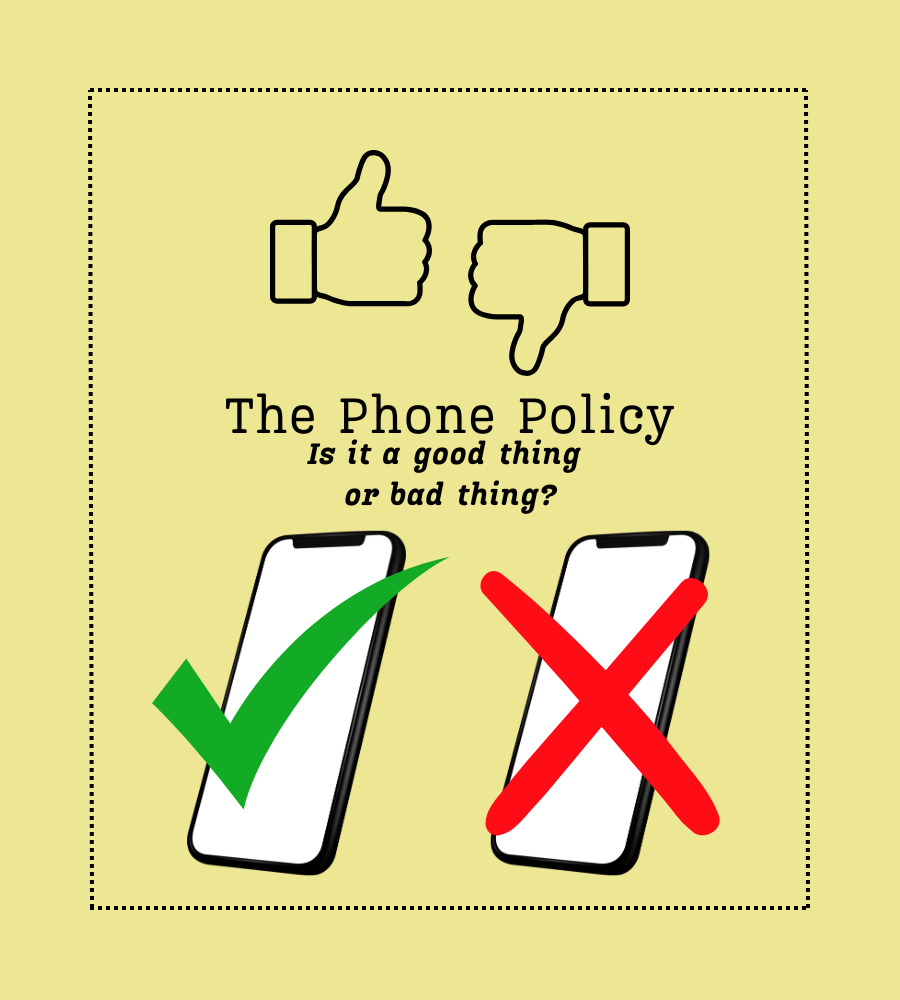This school year, several high schools across the nation have reinforced a new phone policy. The reinforcement of the policy has affected everyone from students to teachers to office staff. A majority of students have shared their disapproval through social media, but the staff enforce the policy nonetheless.
The phone policy should not have as much restrictiveness as it does on high schoolers.
Every teenager that owns a phone has it on them 99% of the time, typically in their hand or pocket. This makes it easily accessible and for some, having their phone provides comfort. For the most part they will carry them in their pockets, more often as a comfort thing so that students know they have easy access to their phones in case of an emergency. A phone keeps them connected to their peers and everything happening outside of the classroom. Without that connection to the outside, students cannot plan for lunch or keep up with family and their life outside of the classroom.
Right now, students have to have their phones powered off and in their backpacks during class, lunch and passing periods. Students allowed to leave school for lunch (Sophomores, Juniors, and Seniors) have the ability to access their phones during their time off-campus. This means students cannot use their phones between 8:05 A.M. and 4:03 P.M. unless they go out for lunch. If seen with their phone out, any member of the school staff has the right to take it with no warning, forcing the student to pay a $15 fine to get it back. The students allowed to go off campus tend to use their phones significantly more than previous years without the ban. Instead of using their phones a normal amount, students off campus tend to use it to check everything they have missed the past several hours while at school.
The difficulty of contacting parents has arised from the reinforcement as well. Last year, if a student needed to contact a parent for something important, they could just call them up, but with the reinforcement they either have to email their parents or call them from the office. This removes the aspect of privacy during student’s conversations between them and their parents because the school administrators can monitor everything on the chromebooks, even emails.
The policy would have had a positive reception from the student population if it did not feel so restrictive. It has gotten to the point where an auditorium full of seniors cannot scan a QR code containing information so they can graduate, students can’t even add something important to their reminders or calendar before forgetting it later in the day. It is too strict.
Despite popular opinions and beliefs surrounding the policy, teachers and other school staff like the new because it makes their job easier. Some noticeable differences since the policy has been the increase in grades, productivity and socialness in the classroom, besides that attendance has stayed the same. They now do not have to deal with the stress of telling students to put their phones away and can focus more on teaching.
While several students like the motive behind the reinforcement of the policy, they do not like the policy or the way it has been executed. Although it opens opportunities for students to interact in the real world, it also restricts their connections to their friends and family during the school day. The main motive for the policy seemed to focus on the increase of learning from students in the classroom, but it also increases the sneakiness of students using their phones during the day. Teachers should have the choice to reinforce this policy depending on the day and class atmosphere. The phone policy should not have as much restrictiveness as it does on high schoolers.


